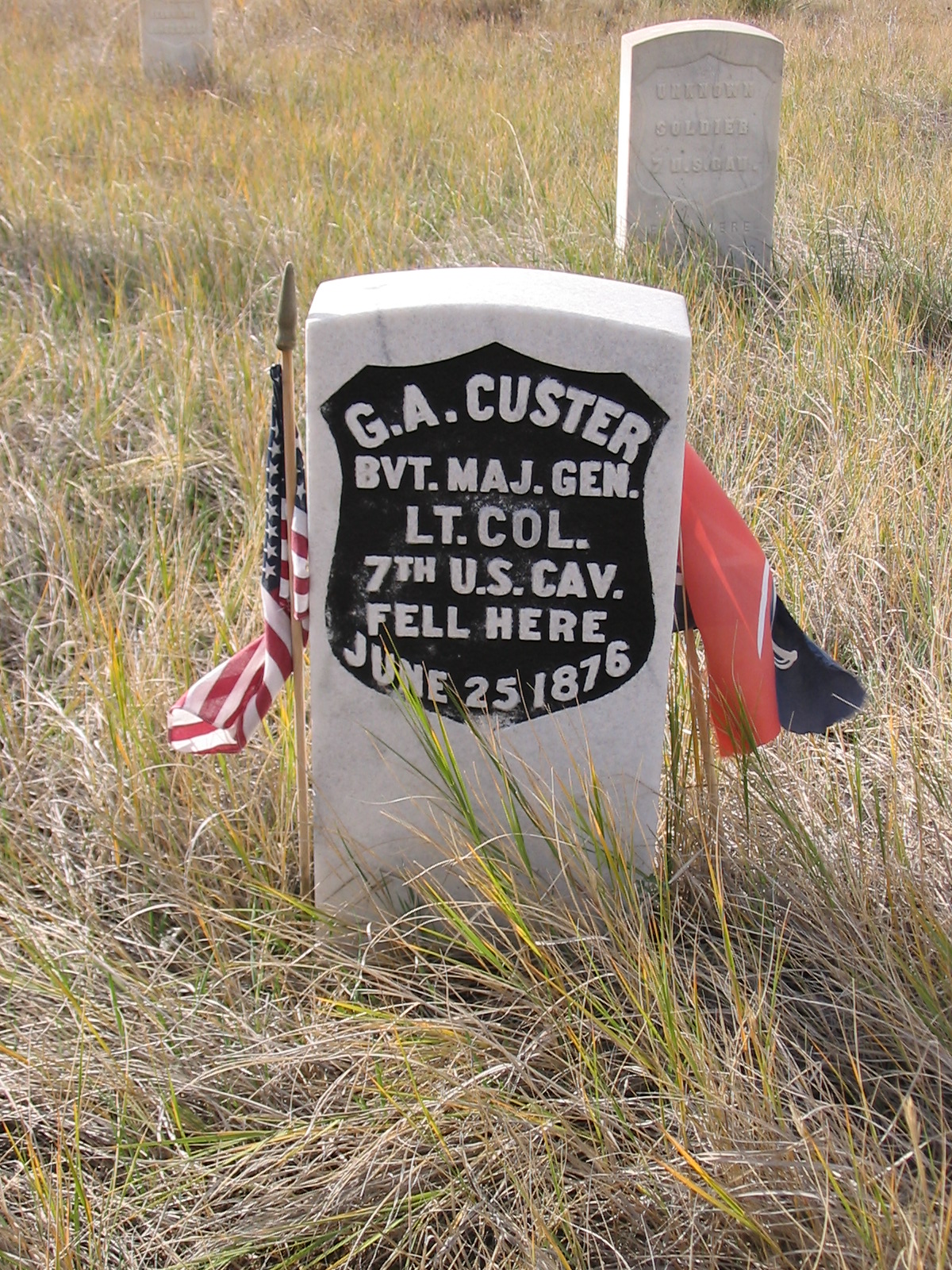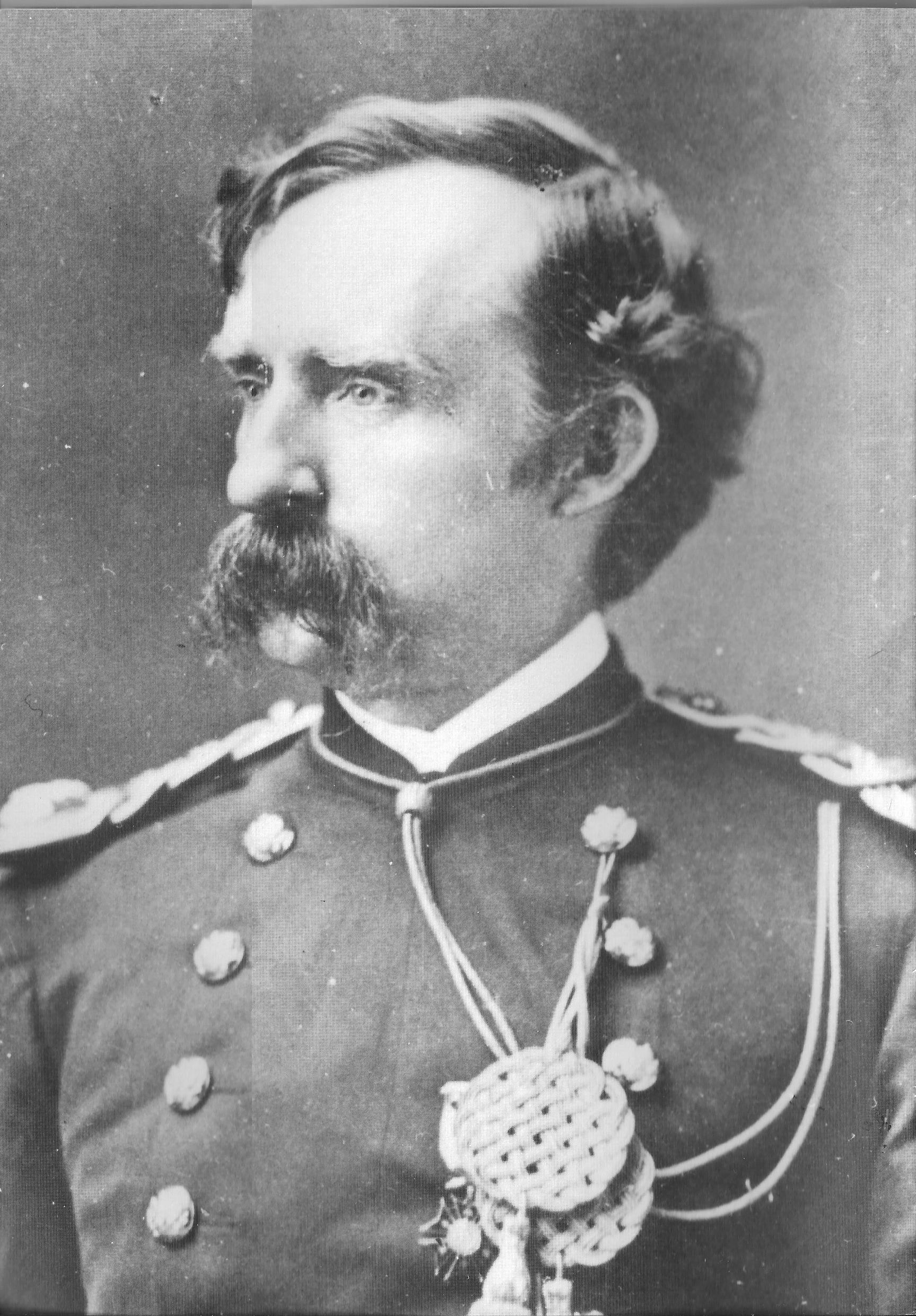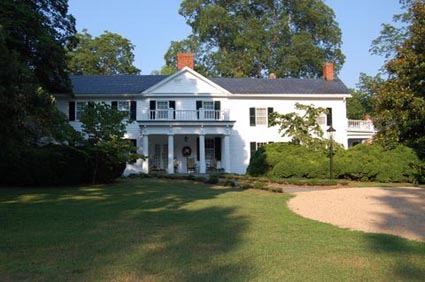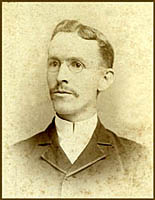‘Chester’ in Scottsville on the James
I never cease to be amazed at the seemingly endless number of connections that can be made between George Armstrong Custer, the 7th U.S. Cavalry and the United Kingdom. While touring Virginia in the summer of 2003, with Brian Del Vecchio and our wives, I stopped by at the antebellum property of Chester in historic Scottsville, on the scenic James River, near Charlottesville. This beautiful home was built in 1847 by Joseph C. Wright, a retired landscape architect from Chester, England.
During the final month of the Civil War it was occupied by Major James C. Hill, 46th Virginia Infantry Regiment, who had been severely wounded in the arm at Harrison’s Creek, near Petersburg, the previous June. He was visited by Generals Sheridan and Custer who decided not to arrest what they presumed was a dying man. However Major Hill survived and, after the War, became editor of the Scottsville Courier. Chester, which today offers exclusive bed and breakfast accommodation in quite delightful surroundings, keeps this Civil War history alive by hosting occasional re-enactments and encampments in its seven-acre grounds. Craig Stratton, the proprietor, greeted us most warmly and generously presented me with a copy of Scottsville on the James, by Virginia Moore, The Dietz Press, Reprinted 1994.
Although a Southerner wrote this excellent history of Scottsville it contains some complimentary references to GAC, which include him “handling a poor horse superbly” and “Custer especially took their eye. His swashbuckling ways so astonished them they would not be too surprised, eleven years later to hear that, fighting Sioux on the Little Big Horn in MontanaTerritory, he had led out 226 cavalrymen (sic) to be slaughtered by a much larger force. Or that, whereas the Indians hacked up the other bodies, they left his undisturbed.”
Note: Hill’s arm never did heal and in 1874 required amputation, elevating him to near hero status among the townsfolk of Scottsville for his War sacrifices. He died in 1906.
George Armstrong Custer (1839-76).

Marker for George Armstrong Custer, Custer Hill, Little Bighorn Battlefield National Monument.

Lt. Col. George Armstrong Custer. Courtesy Little Bighorn Battlefield National Monument.
'Chester' in Scottsville on the James River
- I never cease to be amazed at the seemingly endless number of connections that can be made between George Armstrong Custer, the 7th U.S. Cavalry and the United Kingdom. While touring Virginia in the summer of 2003, with Brian Del Vecchio and our wives, we stopped by at the antebellum mansion of Chester in historic Scottsville, on the scenic James River, near Charlottesville. This beautiful home was built in 1847 by Joseph C. Wright, a retired landscape architect from Chester, England.
- During the final month of the Civil War it was occupied by Major James C. Hill, 46th Virginia Infantry Regiment, who had been severely wounded in the arm at Harrison’s Creek, near Petersburg, the previous June. He was visited by Generals Sheridan and Custer who decided not to arrest what they presumed was a dying man. However Major Hill survived and, after the War, became editor of the Scottsville Courier.
- Chester, which today offers exclusive bed and breakfast accommodation in quite delightful surroundings, keeps this Civil War history alive by hosting occasional re-enactments and encampments in its seven-acre grounds. Craig Stratton, the proprietor, greeted us most warmly and generously presented me with a copy of Scottsville on the James, by Virginia Moore, The Dietz Press, Reprinted 1994.
- Although a Southerner wrote this excellent history of Scottsville it contains some very complimentary references to GAC, which include him “handling a poor horse superbly” and “Custer especially took their eye. His swashbuckling ways so astonished them they would not be too surprised, eleven years later to hear that, fighting Sioux on the Little Big Horn in Montana Territory, he had led out 226 cavalrymen to be slaughtered by a much larger force. Or that, whereas the Indians hacked up the other bodies, they left his undisturbed.”

Chester, 243 James River Road, Scottsville, VA 24590 - contact info@chesterbed.com
- Major Hill’s arm never did heal and in 1874 required amputation, elevating him to near hero status among the townsfolk of Scottsville for his Civil War sacrifices. He died in 1906.

Major James Christian Hill (1831-1906). Scottsville Museum Collection.